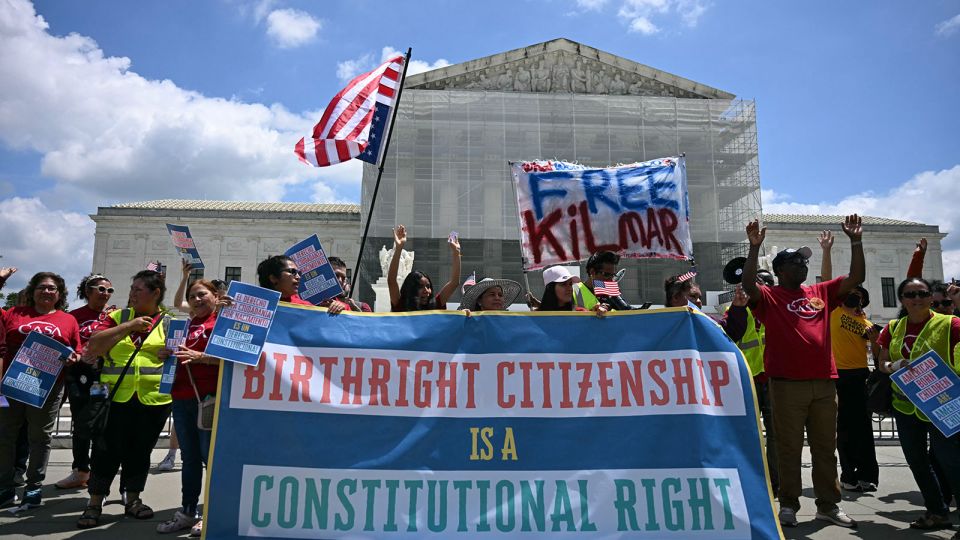A federal appellate court on Wednesday delivered another significant setback to President Donald Trump’s executive order aimed at ending birthright citizenship, declaring it unconstitutional and maintaining a nationwide injunction on the contentious policy.
The 2-1 decision by the 9th US Circuit Court of Appeals holds importance as the Supreme Court recently late last monthorderedlower courts are being asked to re-examine a collection of nationwide injunctions issued earlier this year that prevented Trump from implementing his Day One directive, to determine if they were not overly broad.
A federal judge in Seattle issued an injunction that was reviewed by a San Francisco-based appeals court, which determined that it did not constitute an excessive judicial action requiring correction.
“The lower district court determined that a universal preliminary injunction is essential to provide the states with full relief. We find that the district court did not misuse its discretion by issuing a universal injunction to grant the states complete relief,” wrote appeals court Judge Ronald Gould for the majority.
The states would experience the same irreversible damages under a geographically restricted injunction as they would without any injunction at all,” noted Gould, who was appointed by former President Bill Clinton, explaining that a more limited injunction would force the states that opposed the law to completely revise their eligibility verification systems for multiple social services programs.
The ruling on Wednesday marks the first instance in which an appeals court has completely determined that Trump’s order is unlawful. The Trump administration has the possibility of requesting the entire 9thA panel to examine the case, but it may also take the issue directly to the Supreme Court.
“The district court accurately determined that the Executive Order’s suggested interpretation, which would have denied citizenship to numerous individuals born in the United States, is unconstitutional. We completely concur,” Gould stated in the decision, which was supported by appellate court judge Michael Hawkins, also appointed by Clinton.
He continued by stating that Trump’s order conflicts with the Citizenship Clause of the Constitution, a 1898 Supreme Court decision called United States v. Wong Kim Ark, as well as long-standing practices of the Executive Branch.
Trump’s directive has been halted on a national level following a federal judge in New Hampshire preventing its implementation against any infants affected by the policy, as part of a class-action lawsuit filed by the American Civil Liberties Union. These types of legal actions are among the methods the Supreme Court mentioned that plaintiffs can still use to attempt to broadly prevent Trump’s order from taking effect.
Appeals court Judge Patrick Bumatay, who was appointed by Trump, partially disagreed with the court’s decision on Wednesday. He argued that the states that contested Trump’s order did not have the legal right—referred to as “standing”—to initiate the lawsuit in the first place. Because of this, he believed it was “too early to consider the merits of the citizenship question or the extent of the injunction.”
U.S. District Judge John Coughenour, who was appointed by Ronald Reagan in Seattle, was the initial federal judge to halt Trump’s directive. When he issued an emergency order in late January to stop its implementation, he stated it was “clearly unconstitutional.”
Sign up for additional news and newsletters by creating an account at






